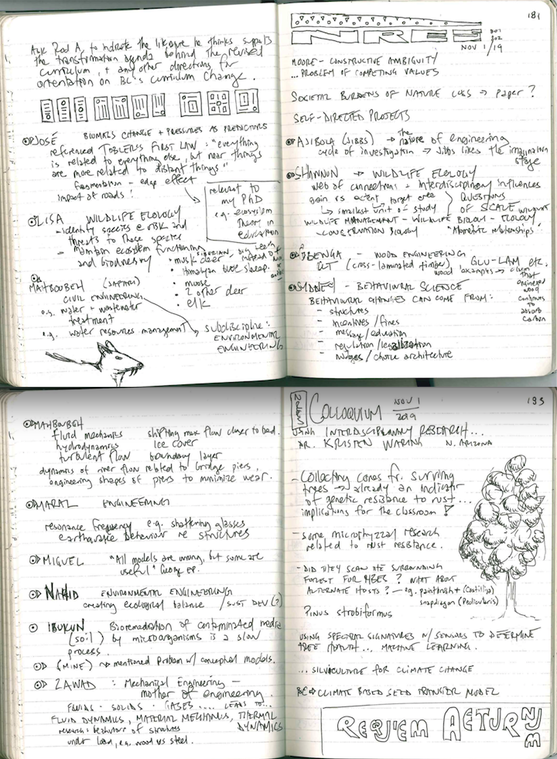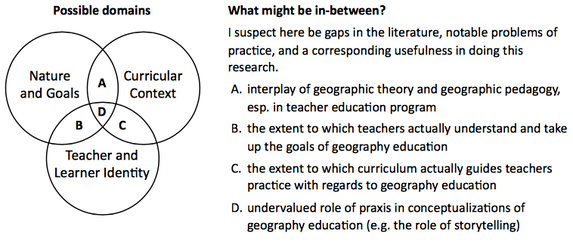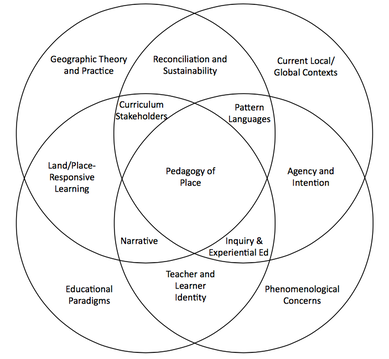This class was a wonderful opportunity to hear about the kinds of research, questions, concerns, passions, and areas of interest that resided in the lives our NRES cohort. I especially like the quote shared by Miguel: "all models are wrong, but some are useful." I used some of my presentation time in this class to talk about the problems with conceptual models as well. Like metaphors, conceptual models can conceal as much as they reveal. I have been experimenting with a variety of conceptual models, some practical, some abstract, that might guide me into my PhD research and help generate questions. On the questions front, the process of conceptualization has ben rewarding. The crops of questions have been abundant. However, the models have been less productive at actually laying out the steps I need to take to move past my questions and into research design. I'm not particularly worried about this -- I am in a nerd's paradise surrounded by excellent questions and a fool's sense of a large expanse of time still in front of me.
In terms of abstract conceptual models, I am considering how various representations of tress might serve a purpose (c.f. Mondrian's Law). The Douglas Fir (Pseudotsuga menziesii) is an attractive candidate. Most of the important things that have happened in my life have happened under a Doug Fir.
Below are some representations of two "practical" conceptual models I have used to push my research topic along... practical at generating questions, anyways. The documents these are taken from are linked in the blog's right-hand side-bar.
In terms of abstract conceptual models, I am considering how various representations of tress might serve a purpose (c.f. Mondrian's Law). The Douglas Fir (Pseudotsuga menziesii) is an attractive candidate. Most of the important things that have happened in my life have happened under a Doug Fir.
Below are some representations of two "practical" conceptual models I have used to push my research topic along... practical at generating questions, anyways. The documents these are taken from are linked in the blog's right-hand side-bar.
From the second conceptual model I extracted four axes that related to tensions within my intended area of study:
- educational axis
- contextual axis
- geographical axis
- phenomenological axis
- Are teachers deriving their practice initiatives related to place from the new curriculum or from an pedagogical understanding? What else motivates or informs the design of this practice?
- What contexts are providing the most traction for teachers who are grounding place-responsive Geography education in real-world concerns?
- What are the specific impacts of the climate change crisis, or the call for Truth and Reconciliation, having on practice design?
- How far have teachers who focus on place gone in terms of accessing geographic theory, of using this theory to structure their practice or inform pedagogy?
- Has the use of geographic theory resulted in implicit or explicit pattern languages at use in teacher practice?
- Who is the self that shows up to teach about place?
- What challenges to the self (or society) are engendered by place-responsive learning?
- How does storytelling relate to teaching about place?
- What are some possibilities and limits to the power of storytelling in the context of place-responsive learning?
- Do teachers understand the new curriculum to have a particular stance on the role and value of place in education? What is that stance?



 RSS Feed
RSS Feed